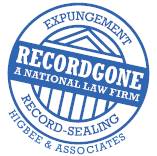Leading Expungement Firm Wins Unanimous Court Decision that Clarifies California’s Expungement Statute
COSTA MESA, CA – July 8, 2009 – Higbee and Associates announced today they successfully appealed People v. McLernon, resulting in a published opinion that helps define one of California’s most frequently used sections of its Penal Code. California’s Second District Appeals Court agreed with attorneys Mathew Higbee and Melissa Clark in a published, unanimous opinion that will provide useful guidance to district courts who often struggle with the interest of justice standard of California’s expungement statute, Penal Code section 1203.4.
Interpretation of Penal Code section 1203.4
Under Penal Code section 1203.4, a defendant who has been convicted of a crime and granted probation is entitled to have his record expunged after the period of probation has terminated “if he comes within any one of three fact situations: (a) he has fulfilled the conditions of his probation for the entire period; (b) he has been discharged before the termination of the period of probation; or (c) in any case in which a court, in its discretion and the interests of justice, determines he should be granted relief.”
The Attorney General argued that the district court’s analysis of an applicants’ conduct should not extend beyond the date they completed probation. The Attorney General also argued that the principle of res judicata, which precludes a person from asking a court to reconsider an issue that was already decided, should apply to applications for expungement under Penal Code section 1203.4.
Justice Analysis Beyond the Probationary Period
Higbee and Associates attorneys Melissa A. Clark and Mathew Higbee argued that the plain language of the statute, underlying policy principles, and legislative history shows that a court’s interest of justice analysis can and should extend beyond the probationary period. They also argued that res judicata should not apply in criminal cases where the standard was interest of justice.
Setting Aside a Conviction After the Termination of Probation
In fact, both the plain language of the statute and the legislative history of the 1971 amendment to the statute (Stats. 1971, ch. 333, § 1) show that the purpose of the amendment to add discretionary relief was to give trial courts the power to set aside a conviction after the termination of probation whenever the circumstances warranted it.
The Appeals Court agreed with Clark and Higbee and put forth their reasons in case law that will help district courts, attorneys and petitioners who have long struggled with the undefined portion of Penal Code section 1203.4. The full decision can be downloaded at http://www.courtinfo.ca.gov/opinions/documents/B209952.DOC.
For more information about criminal record expungement, visit www.recordgone.com.



